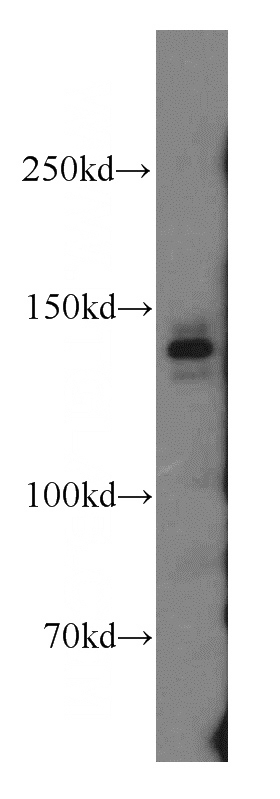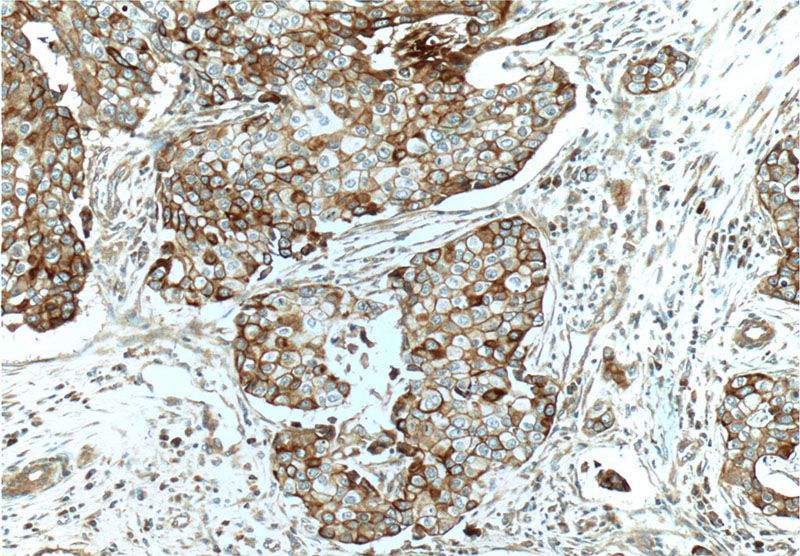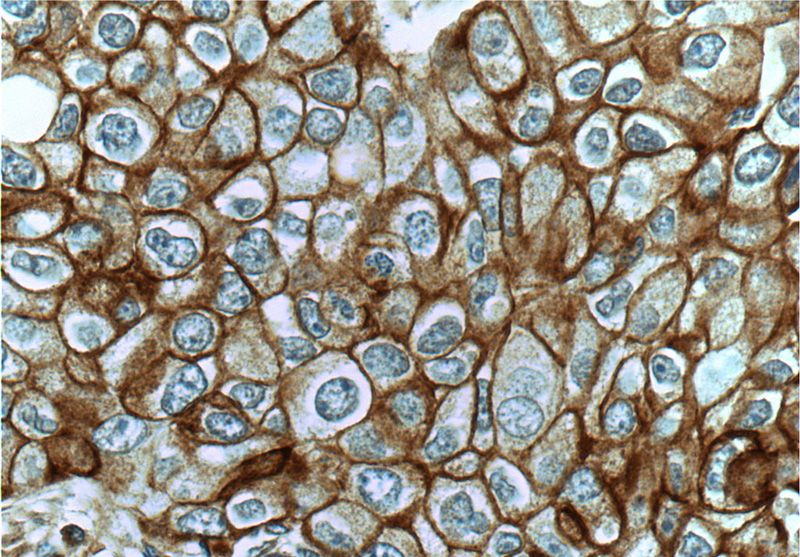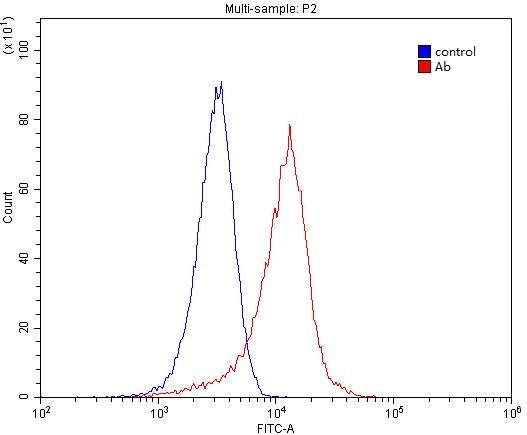-
Product Name
c-Met antibody
- Documents
-
Description
c-Met Rabbit Polyclonal antibody. Positive WB detected in HeLa cells. Positive FC detected in HeLa cells. Positive IHC detected in human breast cancer tissue, human colon tissue. Observed molecular weight by Western-blot: 140 kDa
-
Tested applications
ELISA, WB, IHC, FC
-
Species reactivity
Human,Mouse,Rat; other species not tested.
-
Alternative names
AUTS9 antibody; c-Met antibody; HGF receptor antibody; HGF/SF receptor antibody; HGFR antibody; MET antibody; Proto oncogene c Met antibody; RCCP2 antibody; Scatter factor receptor antibody; SF receptor antibody; Tyrosine protein kinase Met antibody
-
Isotype
Rabbit IgG
-
Preparation
This antibody was obtained by immunization of Peptide (Accession Number: NM_000245). Purification method: Antigen affinity purified.
-
Clonality
Polyclonal
-
Formulation
PBS with 0.02% sodium azide and 50% glycerol pH 7.3.
-
Storage instructions
Store at -20℃. DO NOT ALIQUOT
-
Applications
Recommended Dilution:
WB: 1:200-1:2000
IHC: 1:20-1:200
-
Validations

HeLa cells were subjected to SDS PAGE followed by western blot with Catalog No:109414(MET antibody) at dilution of 1:300

Immunohistochemistry of paraffin-embedded human breast cancer tissue slide using Catalog No:109414(MET Antibody) at dilution of 1:50 (under 10x lens)

Immunohistochemistry of paraffin-embedded human breast cancer tissue slide using Catalog No:109414(MET Antibody) at dilution of 1:50 (under 40x lens)

1X10^6 HeLa cells were stained with 0.2ug MET antibody (Catalog No:109414, red) and control antibody (blue). Fixed with 4% PFA blocked with 3% BSA (30 min). Alexa Fluor 488-congugated AffiniPure Goat Anti-Rabbit IgG(H+L) with dilution 1:1500.
-
Background
MET belongs to the protein kinase superfamily and Tyr protein kinase family. MET is a receptor for hepatocyte growth factor and scatter factor. MET has a tyrosine-protein kinase activity. MET functions in cell proliferation, scattering, morphogenesis and survival. It catalyzes the reaction: ATP + a [protein]-L-tyrosine = ADP + a [protein]-L-tyrosine phosphate. Defects in MET may be associated with gastric cancer. Defects in MET are a cause of hepatocellular carcinoma (HCC). Defects in MET are a cause of hereditary papillary renal carcinoma (HPRC) which also known as papillary renal cell carcinoma 2 (RCCP2). Genetic variations in MET may be associated with susceptibility to autism type 9 (AUTS9). c-Met is involved in cell migration and invasion, and is frequently up-regulated in cancer cells. In WB test, 160-170kd is the pro-MET,125kd and 145kd is mature MET,90kd is some other forms of MET.The antibody recognizes the N-term of MET.
-
References
- Wu J, Wu G, Lv L. MicroRNA-34a inhibits migration and invasion of colon cancer cells via targeting to Fra-1. Carcinogenesis. 33(3):519-28. 2012.
Related Products / Services
Please note: All products are "FOR RESEARCH USE ONLY AND ARE NOT INTENDED FOR DIAGNOSTIC OR THERAPEUTIC USE"
